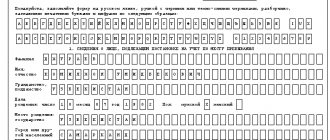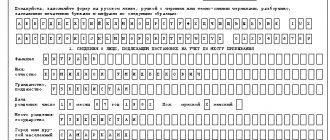Administration of Belovsky Village Council
Normal 0 false false false RU X-NONE X-NONE MicrosoftInternetExplorer4
/* Style Definitions */ table.MsoNormalTable {mso-style-name:"Normal table"; mso-tstyle-rowband-size:0; mso-tstyle-colband-size:0; mso-style-noshow:yes; mso-style-priority:99; mso-style-qformat:yes; mso-style-parent:""; mso-padding-alt:0cm 5.4pt 0cm 5.4pt; mso-para-margin-top:0cm; mso-para-margin-right:0cm; mso-para-margin-bottom:10.0pt; mso-para-margin-left:0cm; line-height:115%; mso-pagination:widow-orphan; font-size:11.0pt; font-family:"Calibri","sans-serif"; mso-ascii-font-family:Calibri; mso-ascii-theme-font:minor-latin; mso-fareast-font-family:"Times New Roman"; mso-fareast-theme-font:minor-fareast; mso-hansi-font-family:Calibri; mso-hansi-theme-font:minor-latin; mso-bidi-font-family:"Times New Roman"; mso-bidi-theme-font:minor-bidi;}
What is personal insult?
In our lives, unfortunately, everyday conflict situations among people are not uncommon. It is not uncommon to find offensive expressions and actions, offensive words, intentionally or accidentally, spoken to the interlocutor. The need to be held accountable for insult can arise in the everyday life of each of us; anyone can be insulted in any way.
Personal insult is a deliberate humiliation of honor and dignity, expressed in an indecent form. This refers to a daring and mockingly cynical verbal form that contradicts the established rules of behavior and communication. This is a verbal humiliating assessment of a person’s physical, mental and other qualities, undermining his prestige, both in his own eyes and in the eyes of society. In this case, it does not matter at all whether the offensive words correspond to reality.
How decent the verbal form is can be determined by focusing on the norms and rules of the modern literary language. Colloquial, obscene, crudely slang words and expressions will be indecent and offensive. It is unacceptable to cross the boundaries of conventional and literary speech.
The definition of propriety or impropriety of a phrase depends on the specific situation. It is important what exactly prompted or provoked the speaker to express himself in such a way, whether the use of an offensive word or expression was appropriate in the general context of the communication situation.
For insult, that is, humiliation of the honor and dignity of another person, expressed in an indecent form, administrative liability and punishment are provided in the form of an administrative fine on citizens in the amount of one thousand to three thousand rubles; for officials - from ten thousand to thirty thousand rubles; for legal entities - from fifty thousand to one hundred thousand.
What to do if you are insulted?
Firstly, do not give in to emotions and do not react to offensive attacks, do not respond to the attacker in kind.
Under no circumstances engage in assault or use physical force, as you will become a defendant in a criminal case - after all, insults often provoke your opponent to take more dangerous steps.
Secondly, pay maximum attention to the evidence. If the witness is an outsider, be sure to take his coordinates so that in the future you can invite him to court or law enforcement agencies to confirm the offensive behavior of your opponent. In a verbal skirmish, use technical means as your allies - a phone or a camera with a video recording function.
Thirdly, file a statement about the fact of insult to the prosecutor's office, since initiating prosecution under Art. 5.61 of the Code of Administrative Offenses of the Russian Federation is carried out by the prosecutor.
The application can be drawn up either in advance independently in any form, or written on the spot, in consultation with the employees of the prosecutor’s office receiving you. All available evidence is attached to the application or issued upon receipt of an explanation from the applicant.
At the end of the relevant inspection, if the applicant’s arguments are supported by evidence, the prosecutor issues a decision to initiate administrative proceedings under Art. 5.61 of the Code of Administrative Offenses of the Russian Federation and transfers the case to a magistrate to bring to justice the person who committed the insult.
In addition, in accordance with Article 150 of the Civil Code of the Russian Federation, personal dignity, honor and good name, and privacy are among the intangible benefits that belong to citizens by birth. This gives a person the basis for independently filing a claim in court for the protection of honor and dignity and compensation for moral damage.
Senior Assistant Prosecutor
Belovsky district
Junior Counselor of Justice V. A. Eremina
It is proposed to introduce criminal liability for insulting citizens by officials
On September 12, bill No. 792837-7 was introduced into the State Duma, which proposes to supplement the Criminal Code of the Russian Federation with Article 286.2, which provides for criminal liability for insult committed by an official in the performance of official duties.
In addition to the main one, several qualified compounds are offered. In particular, the developer classified as such an insult during a public speech and an insult committed by a person holding a public office in the Russian Federation or a region. At the same time, the amendments provide for a wide range of penalties: from a fine of 500 thousand rubles to imprisonment for five years.
Arguments justifying the need for amendments
As noted in the explanatory note, government officials often allow themselves to insult citizens: “Caustic statements by officials aimed at humiliating the honor and dignity of the population indicate a clear disrespect for the people, who, according to the Constitution, are the bearer of sovereignty and the only source of power.”
The thesis is supported by specific examples. In particular, the authors noted that on March 6, 2021, deputy of the Volgograd Regional Duma from the United Russia party, Gasan Nabiev, former general director of Gazprom Transgaz Volgograd, at a meeting of the Volgograd Regional Duma said that pensions of eight thousand rubles in Russia are received exclusively “parasites and drunks” and that these people “are to blame for their financial situation.” The initiator of the innovations believes that the actions of Hasan Nabiyev are “a blatant case of obvious disrespect for the people on the part of a representative of the authorities.”
The author of the bill said that the cases he cited of insulting citizens were related to officials’ neglect of official discipline and their violation of their official duties. According to the deputy, increased administrative liability for officials for insult (Part 1 of Article 5.61 of the Code of Administrative Offenses) is not an effective mechanism for preventing disrespect for people by government officials. It is noted that most of such incidents are not made public and allow the perpetrators to avoid responsibility.
Referring to the general theory of law, the developer recalled that punishment should not be overly lenient so as not to give rise to a feeling of impunity in the offender, and since the current administrative sanction is not a deterrent, he believes that it is necessary to establish criminal liability for insult committed by an official.
The explanatory note notes that the object of the new crime is the honor and dignity of a citizen. Victims can be both private individuals and officials. The objective side is expressed in actions containing a negative generalized assessment of the victim’s personality in an indecent form and degrading his honor and dignity. It does not matter whether the negative assessment of the victim’s personality corresponded to reality. The subject of the crime, as stated in the bill, is an official, the concept of which is given in the note to Art. 285 of the Criminal Code.
Administrative liability for insult
Administrative liability for insult is provided for in Article 5.61 of the Code of the Russian Federation on Administrative Offenses.
Insult means humiliation of the honor and dignity of another person, expressed in an indecent form. An openly cynical form of communication, contrary to public morality, and humiliating for a person is considered indecent. The sanction of this article provides for punishment for citizens in the form of an administrative fine in the amount of one thousand to three thousand rubles. If an offensive statement is contained in a public speech, a publicly displayed work or in the media, the sanction of Article 5.61 of the Code of Administrative Offenses of the Russian Federation provides for a fine of three thousand to five thousand rubles for citizens. But, it should be understood that social networks are not mass media (as a media social network is not registered, it does not have an appropriate license), it is rather a means of mass communication, which is not the same thing (that is, the concept of “means of mass communication "is not identical to the concept of "mass media"). This means that bringing a claim against the owners of the social network is unlikely to be successful. Requirements must be addressed to specific individuals who have used offensive expressions and phrases in their statements on the Internet.
Liability for insulting a minor
A person over 16 years of age may be held administratively liable for insult. If the offender is 16 years of age but under 18, the case will be reviewed by a juvenile commission. As a rule, persons aged 16 to 18 years are exempt from administrative liability by juvenile affairs commissions. Such persons are subject to measures of influence that are not punitive in nature, for example, a warning or transfer to parental supervision. The law does not allow a person under the age of 16 to be held administratively liable.
However, this does not mean that a citizen insulted on a social network does not have the means and mechanisms to restore his violated rights. Persons guilty of insult will bear civil liability, because a person whose right is violated by an offensive publication has the right to go to court with a demand for compensation for moral damage caused. Who is “guilty” and from whom the penalty will be imposed will depend on the age of the offender.
Compensation for moral damage caused by insult
So, if a teenager who has insulted someone on a social network is under the age of 14, his parents or guardians will be responsible for his actions.
But young people aged 14 to 18 years, according to Art. 1074 of the Civil Code of the Russian Federation, they are already independently responsible for the harm caused. True, if their independent income is absent or insufficient to compensate for the harm, then the parents of the offender are also obliged to compensate for the harm in full or in the missing part.
However, the problem in this case is not in finding the applicable rules of law, but in proving the fact of publication of offensive statements by a specific person. It must be taken into account that fictitious names are often used on social networks, or a person may register under someone else’s (existing in reality) name.
Before going to court, you should take care of at least a minimum of evidence to confirm the fact of authorship. In addition, you need to contact a notary who will certify printed Internet pages containing offensive statements addressed to you.
Alexander Otrokhov, Legal (Omsk), April 20, 2013
Fines for rudeness on the Internet
Bill 954048-7, adopted by deputies, with amendments to Article 5.61 of the Code of Administrative Offenses of the Russian Federation increases fines for insults, and also introduces separate fines for insults on the Internet.
Nowadays, humiliation of the honor and dignity of another person, expressed in an indecent form, is considered an insult. That is, obscene, swearing. The bill expands this concept.
Insult will be considered humiliation of honor and dignity in any form.
At the same time, fines for boorish people are being increased. Now insult is punishable by fines from 1,000 to 3,000 rubles. According to the new rules, rudeness will cost from 3,000 to 5,000 rubles.
Increased fines will be imposed for rudeness and insults on the Internet. Let us remind you that now there are no fines for insults on social networks.
According to the new rules, insults committed on the Internet will be punishable by fines ranging from 5,000 to 10,000 rubles. Such fines will be imposed on citizens who are accustomed to insulting their interlocutors online.
If an online insult is committed on behalf of an organization, it can be fined from 200,000 to 700,000 rubles.
Written offensively
In one of its recent decisions, the Trans-Baikal Regional Court ordered a citizen who sent a “hot” SMS to pay 5 thousand rubles as compensation for moral damage to his addressee.
It is noteworthy that the court of first instance, having studied the message, did not find anything in it that went beyond the law. Yes, the text was clearly unpleasant for the recipient, but for some reason the lower court decided that the sender, although offending the recipient, did not defame him enough to be punished for it with a ruble. The second instance did not agree with this conclusion.
“The court of first instance considered that the disputed text of the SMS did not contain information discrediting the plaintiff and refused to satisfy the claims,” the Trans-Baikal Regional Court says.
The Judicial Collegium for Civil Cases of the Trans-Baikal Regional Court overturned this court decision because, having analyzed the screenshots of SMS messages received from the defendant presented by the plaintiff, it came to the conclusion that these statements contained unacceptable expressions that were unacceptable to society, and derogatory comparisons were applied to the plaintiff, which are offensive in nature, SMS messages contain invective language.”
Invective language is foul language, by the way, not necessarily obscene.
One point is important in the legal position of the Trans-Baikal Regional Court: the concept of defamatory information is actually expanding. Narrow approach: to satisfy a claim for protection of honor and dignity, it must be about negative false information about a person. For example, that he is a thief, although in fact he has never even stolen a silver spoon in his life. If you simply call a person a pig or curse him, then this is not defamatory information, but a banal insult. This should be punished under the Code of Administrative Offences. The fine under the relevant article is from 1 to 3 thousand rubles.
A broad approach: any insult is already a reason to protect the honor and dignity of a person. Call your neighbor a pig, reach into your pocket and pay him compensation.
The decision of the Trans-Baikal Regional Court is not unique; the practice is already gaining momentum. The usual amount of compensation for moral damage in cases of electronic harassment is 5-10 thousand rubles. Plus, the defendant must pay court costs.
The usual amount of compensation for moral damage in cases of insults on the Internet or SMS messages is 5-10 thousand rubles
A similar approach can be used when receiving offensive SMS messages, and offensive messages in instant messengers, and, naturally, to rein in Internet trolls - those who like to throw mud at their interlocutors on the Internet.
By the way, experts have recorded a sharp increase in cases of electronic bullying. While at home, not everyone sends bright emoticons across the Internet; for many, electronic swearing has become a lifestyle. And now online trolls have a lot of extra time.
The procedure is as follows: it is advisable to first write a statement to law enforcement agencies and obtain punishment under the Code of Administrative Offences. Then file a lawsuit for protection of honor and dignity. The decision to punish the offender will be additional evidence. But you can immediately file a claim in court.
“Since 2011, the Code of Administrative Offenses of the Russian Federation has contained a norm providing for liability for insulting citizens, including in the media,” notes Dmitry Lipin, Deputy Executive Director of the Chief of Staff of the Russian Lawyers Association. “At the same time, this provision does not contain a special clause providing for liability for insult on social networks.”
The difficulty of bringing to justice for insult on the Internet is that it is necessary to use resources and carry out a number of technical measures in order to establish the identity of the author of the insults, since the Internet still allows maintaining a certain degree of anonymity.
In addition, there is a risk that information necessary for legal proceedings can be quickly removed from the source. On the Internet, deleting your message is as easy as shelling pears. Messengers also have the ability to erase your messages from other phones if you smell something fried. Therefore, experts advise first of all to record the facts of insults on the Internet with a notary. The notary will examine all the necessary Internet pages: correspondence in email, social networks, etc. and draw up a protocol.
The protocol has no statute of limitations, as it reflects information as of the date of its preparation. Thus, if information from the site is deleted after 10 minutes, a day or a week, the record will still remain indisputable evidence during the trial. Since all notarized documents have increased evidentiary value in court, the facts reflected in the protocol will not require additional confirmation. And if the applicant’s rights were violated, he will be compensated for damages or moral harm.
From December 29, 2021, Russian citizens will have the opportunity to apply for security of evidence without leaving home: a law will come into force allowing such notarial acts to be carried out in a remote format.
According to the Federal Notary Chamber, every year the number of requests to a notary for such a service grows by an average of 15-20 percent.










